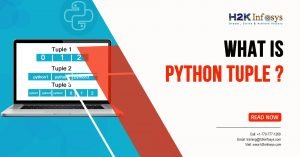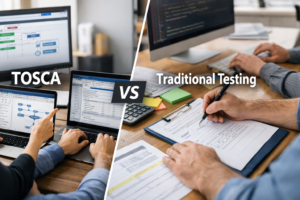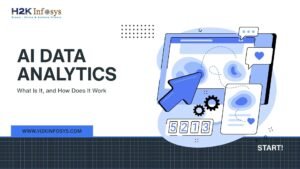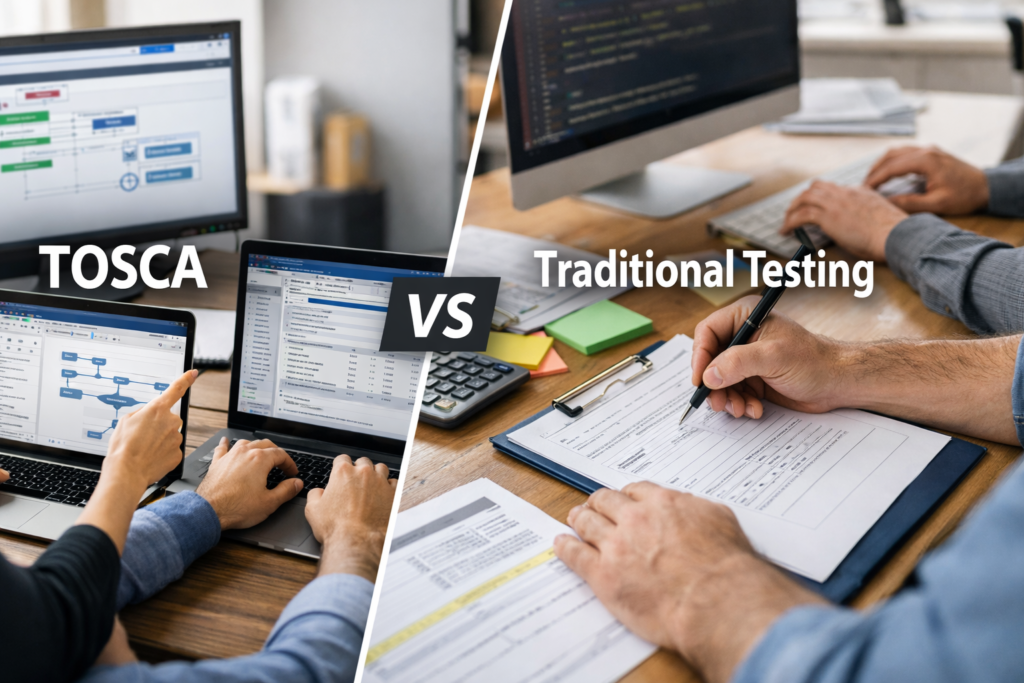Python program has emerged as one of the most versatile and powerful programming languages in the modern era, revolutionizing how we interact with technology across a wide spectrum of applications. From simple automation scripts to cutting edge machine learning algorithms, Python has become the go to language for professionals across various fields such as data science, web development, artificial intelligence, and software engineering. Its widespread adoption can be attributed to its simplicity, flexibility, and the robust ecosystem of libraries and frameworks it offers. As a result, Python has garnered immense popularity among data scientists, developers, and tech enthusiasts alike.
What sets Python apart from other programming languages is its beginner friendly syntax, which mirrors natural English. This accessibility allows newcomers to quickly get started, while still providing the depth and sophistication that advanced developers require for more complex projects. Whether you are a seasoned developer looking to add Python to your skillset or a complete beginner aiming to start your programming journey, Python’s adaptability makes it an ideal language to learn and master.
In this we will delve deep into the fundamentals of Python programming, exploring its structure, syntax, and key concepts. We will also discuss the practical, real world applications of Python across various industries, providing insights into why Python has become such a vital tool in modern technological landscapes. Additionally, we will provide an overview of the essential skills needed to become proficient in Python, equipping you with the knowledge required to succeed in fields like data science, artificial intelligence, and more.
Finally, we will highlight the importance of formal learning, particularly through certified online training programs such as Data Science using Python Online Training. A well structured course not only provides a solid foundation in Python but also ensures that learners gain hands on experience, practical insights, and industry relevant skills that are essential for advancing in today’s competitive job market. Whether you are pursuing a career in data science, looking to transition into a tech role, or simply want to enhance your programming abilities, enrolling in a Python Online Course Certification will give you the edge you need to stay ahead. Let’s dive in and explore the world of Python!
Python is an interpreted, high level, general purpose programming language designed for both beginner and advanced developers. Created by Guido van Rossum in 1991, Python is known for its clear syntax and readability, making it an excellent language for people who are new to programming. Its vast array of libraries and frameworks enables Python to support a variety of tasks such as web development, automation, data analysis, machine learning, and artificial intelligence.

With the rapid growth of technology and data driven decision making in industries, learning Python has become crucial for professionals seeking a career in data science, software development, and analytics. Whether you’re a beginner or looking to advance your skills, enrolling in a Python online course certification will provide structured learning and ensure a strong foundation.
Why Python Is Popular in 2025
The rise of Python can be attributed to several key factors:
- Ease of Learning: Python’s simple syntax resembles everyday English, making it approachable for beginners.
- Versatility: Python supports multiple programming paradigms including procedural, object oriented, and functional programming.
- Extensive Libraries: Libraries like NumPy, Pandas, and Matplotlib make Python the preferred language for data manipulation, visualization, and analysis.
- Community Support: With a large global community, Python developers can find extensive documentation, tutorials, and forums for learning and troubleshooting.
What Is a Python Program?
A Python program is essentially a series of instructions written in Python that tells the computer what to do. These instructions can perform tasks ranging from simple calculations to advanced algorithms. Python programs are written in .py files, and the Python interpreter reads these files and executes the code.
Here’s an example of a simple Python program that prints “Hello, World!” to the console:
pythonCopy codeprint(“Hello, World!”)
This basic program demonstrates Python’s clean syntax and ease of use. The simplicity of Python allows beginners to quickly grasp concepts and progress toward building more complex applications.
Key Concepts in Python Programming
To understand what makes Python so powerful, let’s explore some of the core concepts of Python programming:
Variables: Variables are containers for storing data values. Python does not require you to declare the type of a variable, which makes it dynamically typed.
python
age = 25 name = "John"
Data Types: Python supports various data types such as integers, floats, strings, and lists.
python
is_raining = False # Boolean temperature = 24.5 # Float
Functions: Functions allow code reuse and make programs modular. In Python, functions are defined using the def keyword.
python
def greet(name): return f"Hello, {name}"Control Flow: Python supports conditional statements (if, elif, else) and loops (for, while) to control the flow of execution in programs.
python
if temperature > 30: print("It's hot") else: print("It's pleasant")Modules and Libraries: Python’s standard library and third-party modules extend its functionality for specific use cases like web development, machine learning, or data visualization.
python
import math print(math.sqrt(16)) # Output: 4
Real World Applications of Python
Python is widely used across various domains. Below are some practical applications where Python has revolutionized industries:
Data Science and Machine Learning
Python is the most widely used language for data science and machine learning. With libraries like Pandas for data manipulation, Matplotlib for visualization, and Scikit learn for building machine learning models, Python allows data scientists to analyze large datasets and make informed decisions.
Web Development
Frameworks like Django and Flask make it easier to develop web applications quickly and efficiently. These frameworks handle backend logic, databases, and routing, allowing developers to focus on building user friendly interfaces.

Automation
Python excels in automating repetitive tasks, such as file manipulation, scraping websites, and automating test scripts. This has made Python an essential tool for DevOps engineers and testers.
Artificial Intelligence
Python is the backbone of AI development, enabling the creation of intelligent systems that can perform tasks that would typically require human intervention. Libraries such as TensorFlow and Keras are popular for building deep learning models.
Game Development
Although not as prominent as C++ in game development, Python is used for building simple games and prototyping more complex ones. The Pygame library is commonly used for this purpose.
Essential Skills to Master in Python
To excel in Python and take full advantage of its applications, there are several skills that aspiring developers and data scientists should focus on:
Understanding Python Syntax: A solid grasp of Python’s syntax and structure is crucial. This includes learning about loops, conditionals, functions, and file handling.
Data Structures: Mastering Python’s built in data structures like lists, dictionaries, and tuples is key to writing efficient code.
Object Oriented Programming (OOP): OOP principles like classes, objects, inheritance, and polymorphism help in designing scalable and reusable code.
Libraries for Data Science: Learning libraries like NumPy, Pandas, and Matplotlib is essential for handling large datasets, performing data analysis, and visualizing results.
Version Control Systems: Familiarity with Git and GitHub is beneficial for collaborative development and version control.
Debugging and Testing: Writing error free code is challenging, so understanding Python’s debugging tools and testing frameworks (like PyTest) will enhance your development process.
Benefits of Enrolling in a Python Course with Certification
Career Advancement
- Increased Employability: Python is one of the most in-demand programming languages, and a certification demonstrates your proficiency to potential employers.
- Enhanced Resume: A certification from a recognized institution adds credibility to your profile and makes you stand out in job applications.
- Job Opportunities: Certified Python professionals are sought after in various industries such as data science, web development, machine learning, and automation.
2. Structured Learning
- Comprehensive Curriculum: A well-designed course provides a step-by-step approach to mastering Python, covering foundational concepts to advanced topics.
- Practical Projects: Most courses include hands-on projects to apply what you’ve learned, helping you build a strong portfolio.
- Access to Resources: Courses often provide study materials, coding exercises, and access to industry tools.
3. Skill Development
- Coding Proficiency: A Python course strengthens your programming skills, including syntax, data structures, libraries, and frameworks.
- Problem-Solving: Learning Python helps develop critical thinking and problem-solving skills through real-world applications.
- Versatility: Python is used in diverse domains such as web development, automation, artificial intelligence, and data analysis.
4. Recognition and Credibility
- Validation of Skills: Certification is proof that you’ve met a specific standard of knowledge and expertise in Python.
- Global Acceptance: Certifications from recognized organizations are acknowledged worldwide.
5. Higher Earning Potential
- Certified Python developers often command higher salaries due to their verified expertise.
- Python proficiency is a valuable asset in roles like data scientist, software engineer, and machine learning engineer, which are among the highest-paying jobs in tech.
6. Networking Opportunities
- Community Access: Enrolling in a course connects you with peers, instructors, and industry professionals, broadening your network.
- Collaboration: Many courses include group projects or forums where you can collaborate and learn from others.
7. Lifelong Learning
- Confidence in Learning: A structured course encourages a growth mindset and motivates you to tackle more complex challenges in programming.
- Foundation for Further Skills: Mastering Python can make it easier to learn other programming languages and technologies.
8. Support and Mentorship
- Guidance from Experts: Certified courses are usually taught by experienced professionals who can guide you through challenges.
- Career Mentorship: Some programs offer career counseling, interview preparation, and job placement support.
9. Flexibility
- Self-Paced Options: Many online courses allow you to learn at your own pace, making it convenient for working professionals or students.
- Wide Range of Topics: From beginner to advanced levels, you can choose a course that matches your current skills and goals.
10. Certification’s Long-Term Value
Proof of Commitment: Completing a course shows dedication and the ability to complete challenging tasks, qualities valued by employers.
Lifelong Credential: Certifications often remain valid indefinitely or are easily renewable, making them a long-term asset.
Conclusion
Python is an indispensable language for professionals across a wide array of fields, from data science and AI to web development and automation. Learning Python not only equips you with the skills needed to thrive in today’s data-driven world but also opens doors to numerous career opportunities.
By enrolling in H2K Infosys Data Science using Python Online Training, you’ll gain a comprehensive understanding of Python, from its basic syntax to advanced data science techniques. The course offers hands-on experience, real world projects, and an industry recognized certification upon completion. Whether you are a beginner looking to start your programming journey or a professional aiming to switch careers, this training program provides the perfect pathway to mastering Python.
Key Takeaways:
Python is a versatile, high level programming language widely used for data science, web development, and automation.
Mastering Python’s core concepts, such as variables, control flow, functions, and libraries, is crucial for building efficient programs.
Python’s real world applications span various industries, including artificial intelligence, machine learning, and data analysis.
Enrolling in a Python Programming Training Course not only validates your skills but also enhances your career prospects.
Call to Action:
Ready to kickstart your Python learning journey? Enroll in H2K Infosys Python Online Training today and gain the skills needed to excel in the industry. With flexible online learning, hands on projects, and a certification to validate your expertise, this course is your gateway to a successful career in Python programming.


























